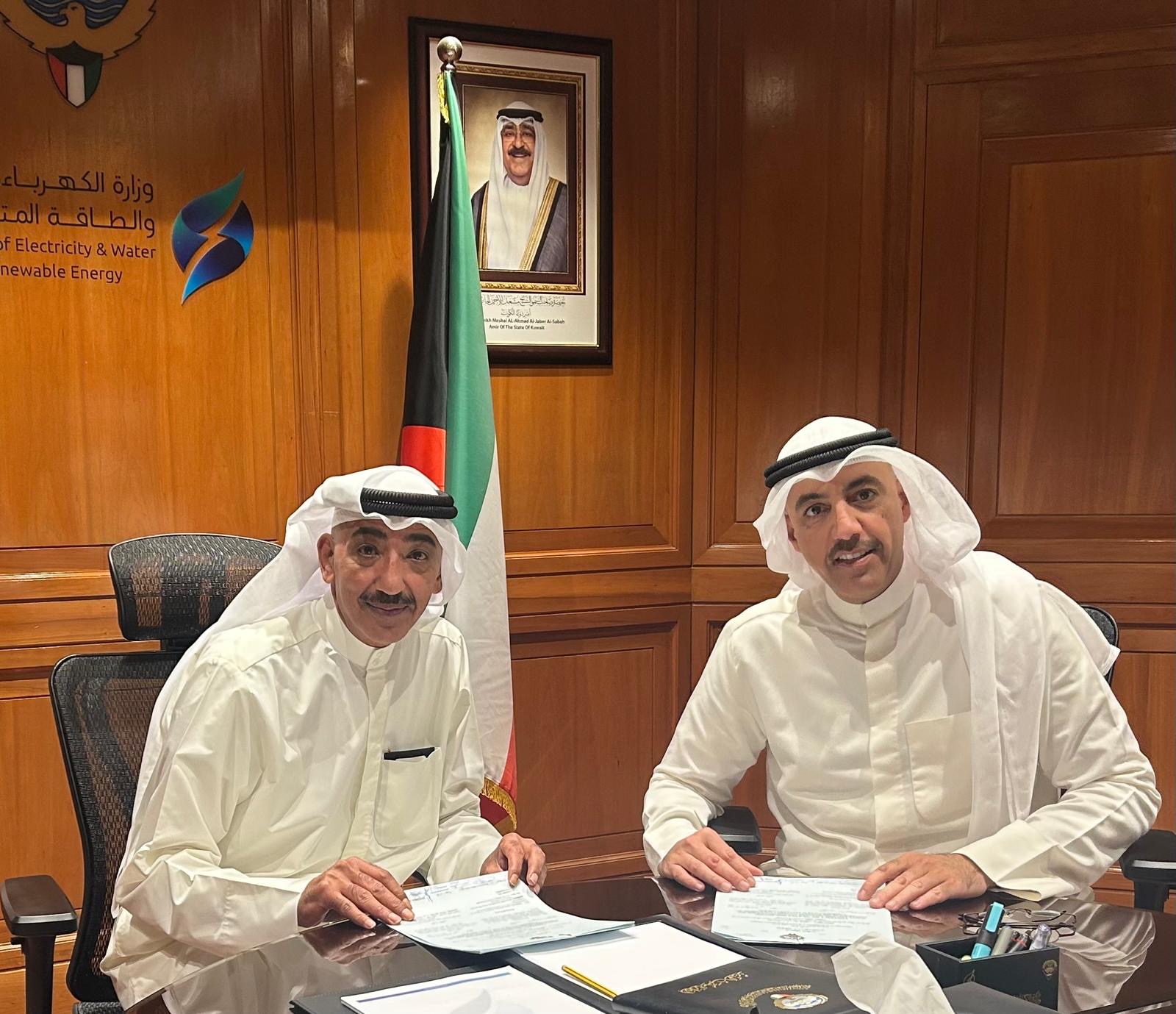
The expansion project of the Al-Sabah plant, with a capacity of 250 MW, has a total value of about 113 million KD with Alghanim International, after obtaining all the necessary approvals from the regulatory authorities.
On this occasion, His Excellency stated that this project represents the first step in strengthening and developing the electrical system in the State of Kuwait, as the Ministry is currently in the process of issuing a tender for the expansion of the Sabiya plant (Phase IV) with a production capacity of 900 MW.
In addition, the tender for the construction of the North Zour plant (phases 2 and 3) is being finalized, with a production capacity to be awarded to the winners. The Ministry, in cooperation with the Partnership Authority, is also in the process of finalizing the tender documents for the 1,800 MW Al Khiran plant.
As for renewable energies, six companies were recently qualified to establish the Shagaya plant project (phases 2 and 3), with a production capacity of 1,700 MW, by the Ministry and the Partnership Authority teams.
In the same context, the Ministry, in cooperation with the Ministries of Foreign Affairs and Finance, is currently working to finalize a long-term partnership agreement for 2,400 MW of renewable energies to establish the Abduliyah and Shagaya (4 and 5) renewable energy plants, with a production capacity of up to 3,400 MW.
On the other hand, H.E. stated that the Ministry, in cooperation with the Ministry of Finance and the Kuwait Direct Investment Promotion Authority (KDIPA), is currently finalizing the legal requirements for the construction of two power plants with a production capacity of 6,600 MW in the Al Abdali and Al Nuwaisib areas.
In connection with the above, the total electricity production capacity expected to be added successively during the next five years is 17,350 MW, of which renewable energy represents 30%, with total financial investments estimated at about KD 5 billion, in which the private sector's contribution is more than 90%.
Due to their end-of-life nature and the fact that they are no longer economically viable, they are now being phased out.